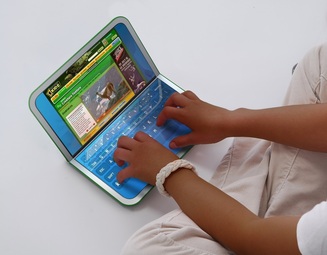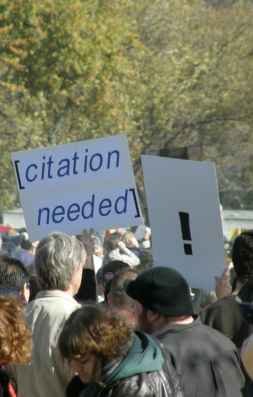Research, Technology and the Common Core
The importance of research skills for today’s students is clearly delineated by the Common Core State Standards:
These skills are addressed explicitly in several Common Core Standards. Standards for writing, for example, call on students to
|
|
Today's research requires merging a wide range of literacy, analytical and technical skills:
|
There is a tendency to view teaching standards in isolation, as a set of independent objectives to be checked-off. But understood as a framework to develop deep critical thinking skills, the Standards must be approached in a more integrated fashion. The arc of a research project from conception to final presentation, done correctly, certainly addresses the explicit research/technology oriented standards mentioned above. However engagement in research involves much more. Indeed this was the intention inherent in the development of the standards. From the introduction:
|
An examination of the phases of research reveals the interdependence between research, media skills and numerous other Common Core Standards:
Planning & Investigation Phase (Find and vet sources):
The initial preparation and early stages of a research project involves several key skills:
Develop Research Questions: The teacher or, at the secondary level the students, must design “research projects to answer a question (including a self-generated question)” (CCSS WS-7 – Grades 8-12):
Locate and Organize Source Material: Digital resources need to be saved and categorized for easy retrieval, requiring several steps:
|
|
Analysis Phase:
Once sources have been explored and vetted, the next step involves analysis of the content to extract meaning and relevance to the research topic. Many Common Core standards directly address the following skills:
|
Production Phase
Once the writing is complete, the Standards call for students to produce and publish the research. Again, aligning closely with many of the standards, this calls for students to
|
Technology Transforms Research Process
|
Video: Quick overview of NoodleTools
|
Clearly technology has profoundly impacted the research process. From Google searches to sophisticated content-production platforms, there are many powerful tools at students' disposal. The challenge for teachers is to identify and strategically use the tools to aid in the higher-order cognitive skills: the categorization, analysis, organization and writing tasks that are the more difficult and most important elements of student research.
The research process clearly encompasses a very broad range of the essential skills our students need. Carefully implemented, well-selected digital tools can unleash students' creativity and greatly increase productivity while supporting the development of these abilities that are so important for their success. See the upcoming Workshops and Summer Institute in collaboration with the UC Berkeley History-Social Science Project focusing on technology to support literacy and student research.
|
Photo Credits:
- Student w/ Laptop - Creative Commons 2.5: OLPC Foundation:
- "Citation Needed" - Creative Commons 2.5: Dan4t
- "NoodleTools Mashup" by Devin Hess. Video excerpts: NoodleTools Tutorial. Music: Julian Smedley, performed by Kaila Flexer & Third Ear.


